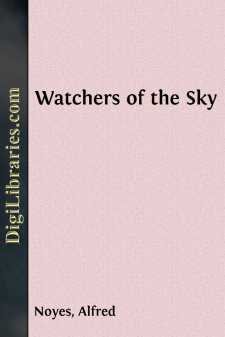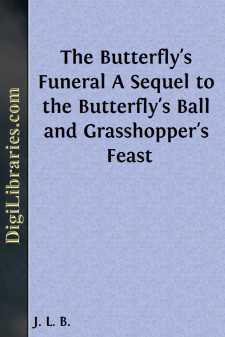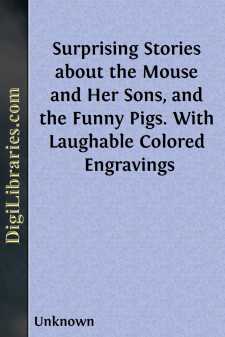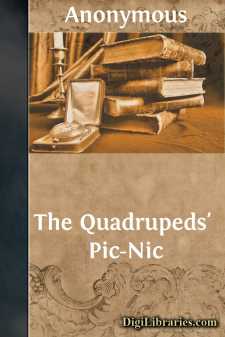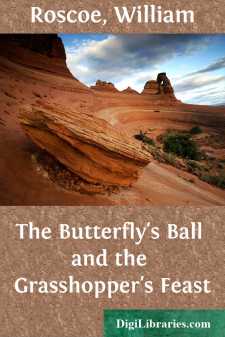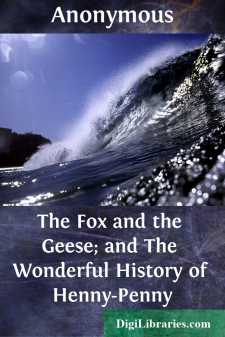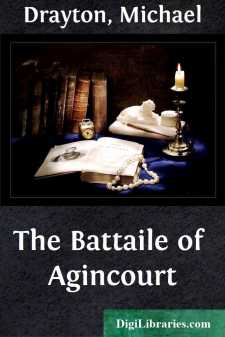Poetry
General Books
Sort by:
INTRODUCTION. Nash's "CHOISE OF VALENTINES" has apparently come down to us only in manuscript form. It is extremely doubtful (Oldys notwithstanding), whether the poem was ever before accorded the dignity of print. Nor would it now be deemed worthy of such were the only considerations those of literary merit or intrinsic value: truth to tell there is little of either to recommend it. But,...
more...
by:
Alfred Noyes
This volume, while it is complete in itself, is also the first of a trilogy, the scope of which is suggested in the prologue. The story of scientific discovery has its own epic unity—a unity of purpose and endeavour—the single torch passing from hand to hand through the centuries; and the great moments of science when, after long labour, the pioneers saw their accumulated facts falling into a...
more...
by:
J. L. B.
Oh, ye, who so lately were blythesome and gay,At the Butterfly’s Banquet, carousing away;Your feasts and your revels of pleasure are fled,For the soul of the Banquet, the Butterfly’s dead.No longer the Flies and the Emmets advance,To join with their friends in the Grasshopper’s dance;For see, his thin form o’er the favourite bend,And the Grasshopper mourns for the loss of his friend.And hark, to...
more...
by:
Unknown
THE MOUSE AND HER SONS.Once on a time there lived a Mouse,Sole mistress of a spacious house,And rich as mouse need be:'Tis true her dwelling, underground,Was neither long, nor square, nor round,But suiting her degree.No lofty ceilings there were seen,No windows clear, or gardens green,Or rooms with neat division.But, in a corner, she could findOf viands, sorted to her mind,A notable provision.Her...
more...
by:
Anonymous
APPLES so round, and bright, and red—O, how I love to see;They look so tempting as they hangUpon the green old tree. A naughty boy once tried to stealFrom off his neighbor's bough;But sad to hear, adown he fell,And is a cripple now. BOYS oftentimes are rough and rude,And join in wicked play;But hoop and top, and bat and ball,Are better any day. "Hark! hark! I hear a tinkling bell;It...
more...
by:
Anonymous
NO doubt you have heard how the grasshoppers’ feasts“Excited the spleen of the birds and the beasts;”How the peacock and turkey “flew into a passion,”On finding that insects “pretended to fashion.”Now, I often have thought it exceedingly hard,That nought should be said of the beasts by the bard;Who, by some strange neglect, has omitted to stateThat the quadrupeds gave a magnificent...
more...
by:
William Roscoe
INTRODUCTION. Early in the present century John Harris—one of the successors to the business of "Honest John Newbery," now carried on by Messrs Griffith & Farran at the old corner of St. Paul's Churchyard—began the publication of a series of little books, which for many years were probably among the most famous of the productions of the House. Now, however, according to the fate...
more...
by:
Anonymous
THE FOX AND THE GEESE. There was once a Goose at the point of death, So she called her three daughters near, And desired them all, with her latest breath, Her last dying words to hear. “There’s a Mr. Fox,” said she, “that I know, Who lives in a covert hard by; To our race he has proved a deadly foe, So beware of his treachery. “Build houses, ere long, of stone or of bricks, And get tiles for...
more...
A for Arab.This Arab is upset, I fear;Look at his pretty shield and spear.He's stuck two pistols in his sash,And, dear me, how his eyes do flash!At home he has a horse to ride;To "scour the desert" is his pride.His horse is of the purest breed;Some people call his horse a steed.Here is your little brother Boer,Of course, you've heard of him before;He has a naughty Uncle Paul,Who used...
more...
by:
Michael Drayton
INTRODUCTION. All civilized nations possessing a history which they contemplate with pride endeavour to present that history in an epic form. In their initial stages of culture the vehicles of expression are ballads like the constituents of the Spanish Romanceros and chronicles like Joinville’s and Froissart’s. With literary refinement comes the distinct literary purpose, and the poet appears who...
more...



